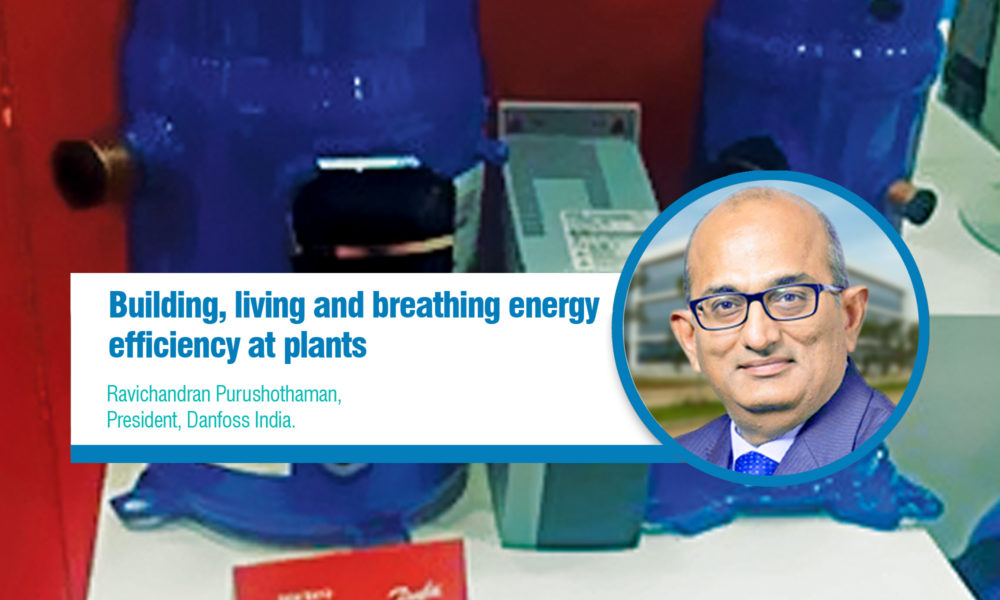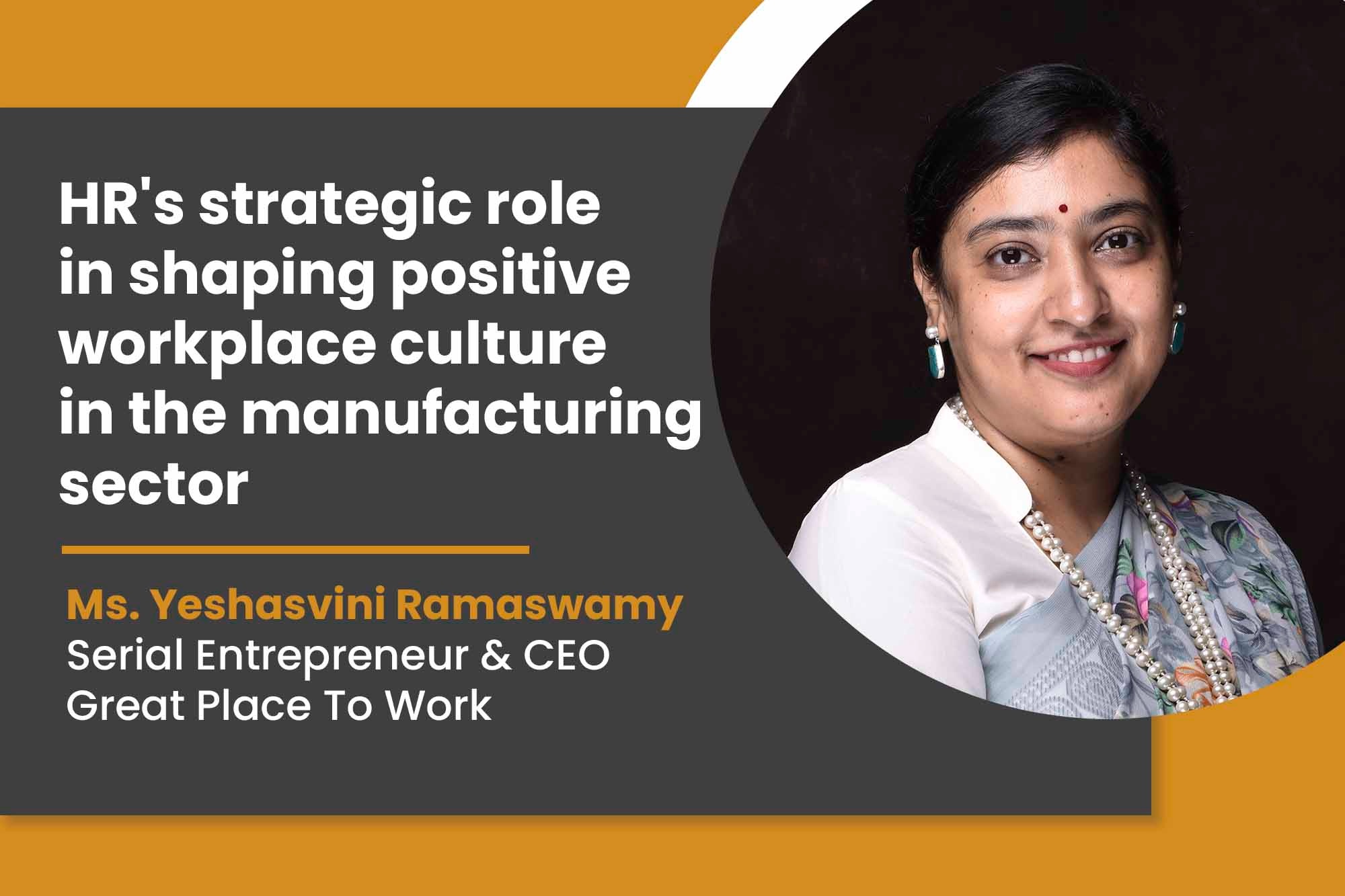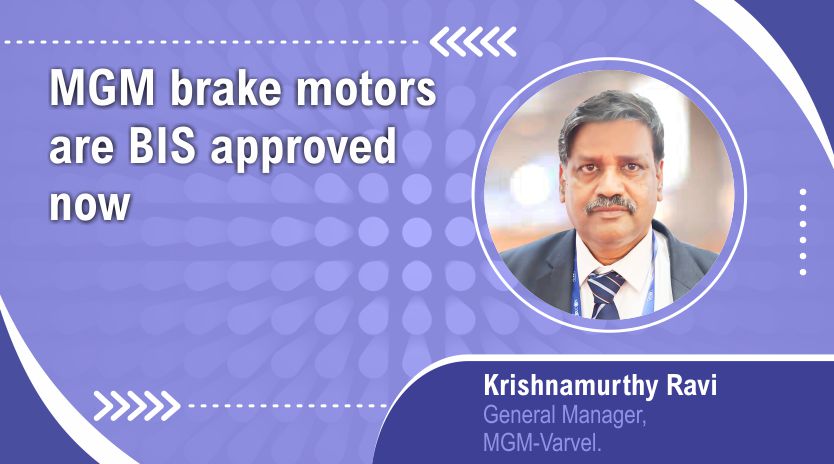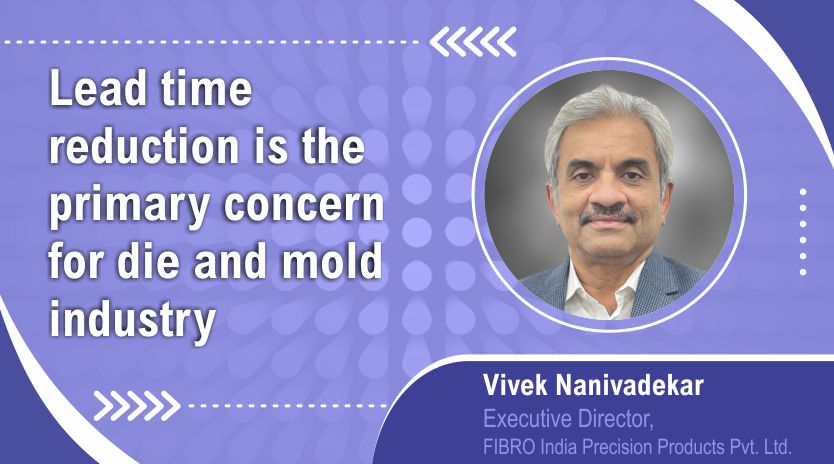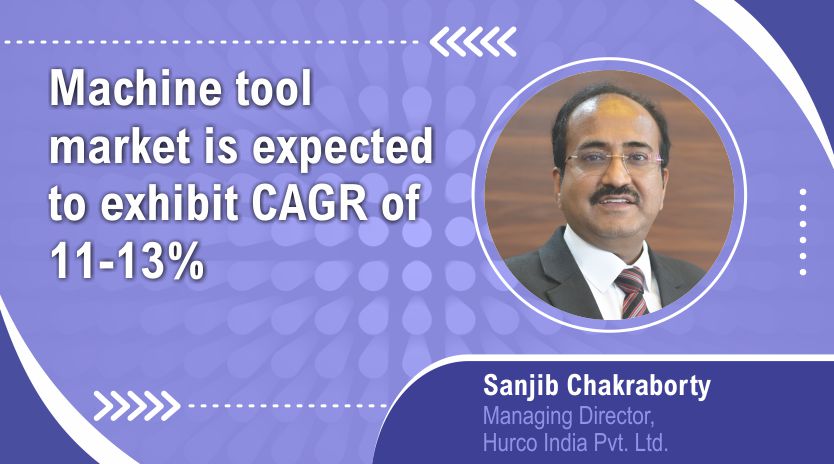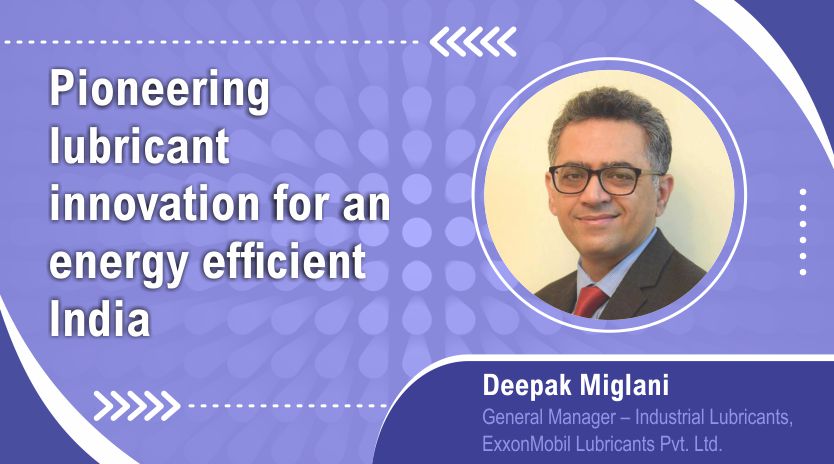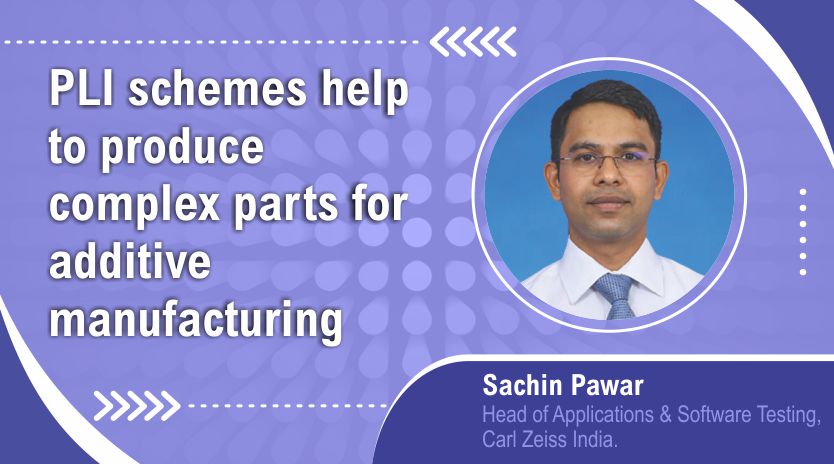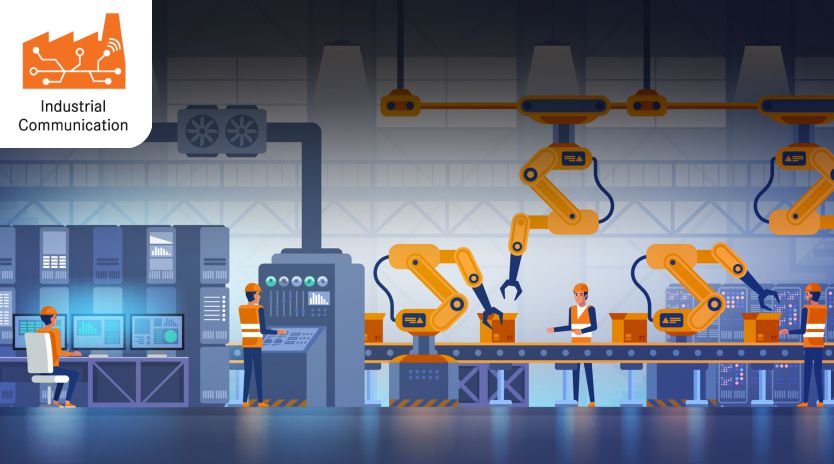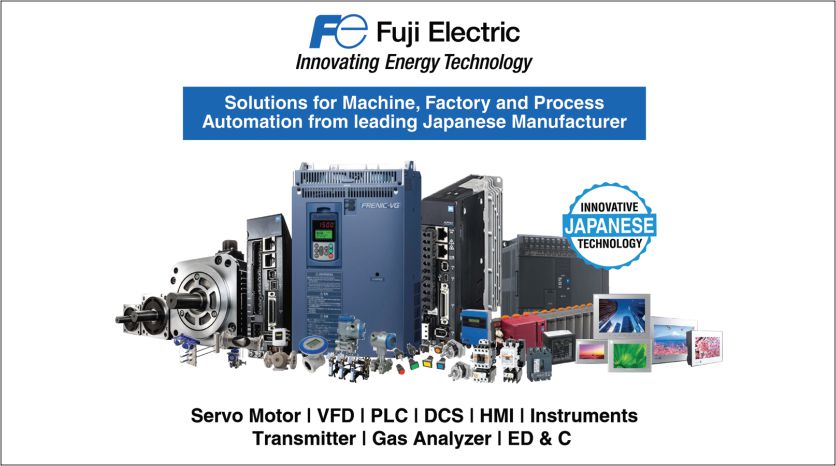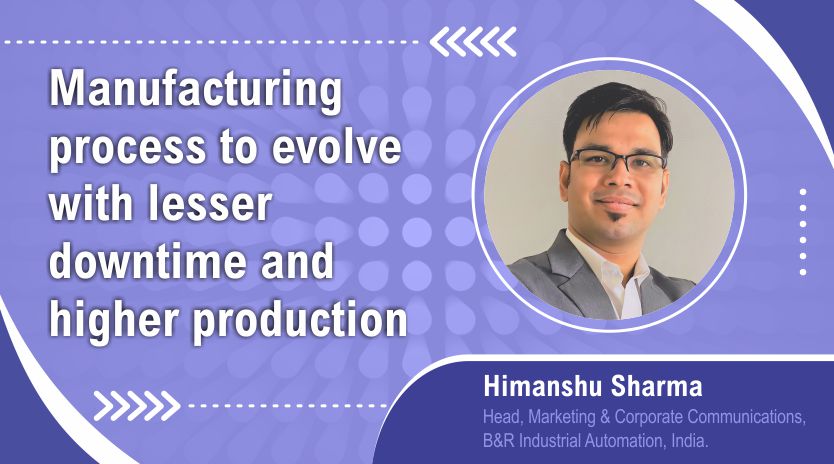Building, living and breathing energy efficiency at plants
By OEM Update Editorial April 13, 2019 12:41 pm IST
Putting up a target to reduce CO2 footprint and energy consumption by 50 per cent, Danfoss has been trying to show us the way through all possible ‘green’ measures. Ravichandran Purushothaman, President, Danfoss India. Danfoss India, in a discussion with Athira Bejoy shares how Danfoss is contributing to attain India’s sustainable development goals.
Tell us about Danfoss’s participation in ACREX 2019.
Danfoss has been associated with ACREX for several years now. Jointly constituted by ISHRAE and Danfoss in 2015, the ACREX Hall of Fame is an annual event, currently in its fourth edition, where the most energy efficient and sustainable building in the air-conditioning and refrigeration space in the country is identified and inducted into the Hall of Fame. The reason behind this initiative is that commercial buildings consume a lot of energy in the air-conditioning space. With the number of buildings in India increasing year on year,
in the next 10-15 years, we are expecting a lot more of this building activity to happen in tier 1 and tier 2 cities.
Therefore, it becomes important for the new buildings to do it right the first time. So, we see this recognition in the Hall of Fame as a forum to recognise and reward the owner of a building or a consultant or an architect for their efforts towards creating an energy efficient building.
What criteria goes into the nominations?
The Hall of Fame inductees are chosen by a technical committee that has been instituted by Danfoss and the ACREX committee, which comprises of leading consultants, professors and industry stalwarts and evaluate data from the building management system – which is highly credible and cannot be forged. It needs to come through an automated system for all commercial buildings because it helps
the building to understand how you can optimise it further.
Based on the data from the automated system, it is further presented to the jury which is headed by Dr. Ajay Mathur. The data is with respect to the air-conditioning of the system, the energy performance index of the air-conditioning, what are the things they’ve done to improve energy efficiency, how are they getting and optimising this data, what are the parameters used, how are they using water etc. A lot of these similar kind of indicators are taken into account before the building is inducted. While operational expenditure is something that stays with the building throughout its lifecycle, whatever you invest as CAPEX most often is recovered within 2 years.
With this initiative, what message is Danfoss giving out to the industry?
Through Hall of Fame, we showcase how Danfoss lives and breathes energy efficiency. As a company, we have taken a target on ourselves that by 2030 we will reduce 50 per cent of our energy consumption while not compromising on productivity. We started this in 2015, and in about four years now we have reduced close to 47 per cent, so we are very close to achieving the target. We’ve also set a target of reducing our CO2 footprint and our energy intensity by 50 per cent. As we’ve already achieved 47 per cent, we are now revisiting and revising our target. So, for a corporate like Danfoss that is spread across the globe, if this achievement has been possible, it is also possible for others to adopt such targets as well.
How do you exactly reduce the dependence on energy without compromising on productivity?
At Danfoss, we believe is that energy efficiency is the first fuel. While we have fuels like coal, solar and other renewables are increasingly coming into focus. The first fuel that we have to look at is energy efficiency in itself. Instead of producing more energy, which will meet more requirement of energy demand, if you can just focus on energy efficiency, the demand that is foreseen up to 2030, can be meet by almost 38 per cent through the intervention of energy efficient technologies alone.
Overall, India is a potential market for all our business segments, be it cooling, drives, power solutions or heating which made it a good market for Danfoss solutions. As you know, cooling was considered a luxury in those days and our products used to be imported from manufacturing facilities across various parts of the globe and then being sold here. To tackle the challenges of the import duties and customs duties which were very high, we decided to set up a facility here. This also enabled us to be closer to our customers and help them in jointly addressing their challenges and co-creation of technologies.
Do you think the home grown innovation has global acceptance?
Danfoss has been built on the power of innovation. We are probably one of the very few companies which puts in about 4.2 per cent of our profits back into innovation and R&D. Even in terms of investment that we’ve done in India, a large part of investment in the Indian plant is also in the R&D space. We have a large R&D team in India and also astate-of-the-art lab for air-conditioning in India where you can improve the energy efficiency of the end products. This is something that we offer to the customers so that our customers can come and test their products at our campus and try and see how they can improve the energy efficiency further. We have a lab which can test from 2 tonnes to 50 tonnes chillers with not only the current refrigerants but also with future refrigerants which are low on GWP and low on ozone depleting potential, thereby making it a future looking lab that we’ve invested in the campus. While we have developed several products that were originally designed and developed for the Indian market, we are proud to say that the very same products are now being exported to other parts of the world. Therefore, our focus has been on building the Danfoss India for India narrative as well as Danfoss India for the rest of the world.
What role do you think technology will play in the HVAC industry of tomorrow?
The government has put together a Cooling Action Plandraft in place where it also talks about what is the cooling demand that the country is going to face in the next 10 years from across sector – because cooling is just not air-conditioning; it also includes commercial and domestic refrigeration, cold chain etc. They have forecasted the upcoming demand and business dynamics that will shape the future of the industry.
Therefore, technology has to play a major role to make the industry sustainable, because the demand for HVAC&R is ever rising. In simple terms, to improve productivity, living conditions and working conditions need to be improved- and air-conditioning becomes very critical here, therefore transforming into a necessity.
Indian market is price sensitive. People don’t seem to buy costly products. What is your opinion?
That’s right and that’s where media has a major role in educating people. With respect to Danfoss products, between 18-30 months you can recover the cost – no matter which product and which industry it is catering to. For 24/7 applications, the return on investment would be much faster. Actually it’s a no brainer to go for an energy efficient product. But you’re right, the consumer mindset is different and that needs to be changed.
Our focus has been on building the Danfoss India for India narrative as well as Danfoss India for the rest of the world
Ravichandran Purushothaman, President, Danfoss India.
Cookie Consent
We use cookies to personalize your experience. By continuing to visit this website you agree to our Terms & Conditions, Privacy Policy and Cookie Policy.



